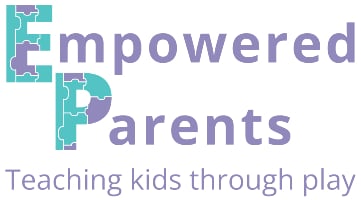Board games are a great way to have fun while building important developmental skills, but it can be challenging to find games that are suitable for preschool children.
When there are too many rules or the gameplay is too complex, young children may become bored or discouraged.
In this article I’m sharing 10 age-appropriate, fun board games for preschoolers. Links are provided for your convenience to find the games on Amazon.
But just before I share them, here’s a quick look at some of the skills your kids will learn while playing board games:
- Taking turns
- Following rules/directions
- Learning to lose gracefully
- Counting/number sense
- Identifying colours
- Strengthening memory
- Developing hand-eye coordination
What are the best board games for preschoolers? Choose games that target many of these skills, including those your children have already mastered and those toward which they are still working.
The following descriptions are some of the best board games for 4 and 5-year-olds. A few of them are also suitable for 3-year-olds.
This post contains affiliate links for educational products that I personally recommend. If you purchase through one of them, I earn a commission at no extra cost to you. Read the terms and conditions for more details.
1. Sequence for Kids
Taking turns, each child plays a card from their hand and then places the matching character on the board.
The first player with four chips in a row is the winner.
This game, which does not require reading, is great for practising logical thinking skills and accommodates up to four players.
2. Chutes and Ladders
Still a favourite preschool game, 2-5 players spin the numbered spinner to determine how many spaces to move.
Ladders help children reach the top of the board, but chutes can slide them back to the bottom. The first to reach the top is the winner.
This is a non-reading game that helps children practise number recognition and counting.
3. Outfoxed
In this cooperative game for 2-4 players, kids work together to figure out which fox stole the pie before it escapes into the foxhole.
The game helps build deductive reasoning and logical thinking skills, much like a preschool version of the game Clue.
4. Candyland
Another old favourite, 2-4 players draw cards to determine the movement of their tokens along the path.
Candyland helps children practise colour recognition and basic counting skills, such as ordinal numbers like first and second.
The first player to reach the castle is the winner.
5. Hoot Owl Hoot!
In this colour-matching game, 2-4 players draw cards to help the owls fly back to their nest before sunrise.
With a focus on cooperative play, the game helps to exercise problem-solving skills in a fun way.
It also offers two levels of play to suit various ages and abilities.
6. Hi Ho! Cherry-O
Up to 4 children play this traditional game to see who fills their basket with fruit first to win the game.
Players spin the numbered spinner to determine how many fruits to collect or return, giving them valuable practice in counting, adding and subtracting.
As an option, the game may also be played in teams.
7. Monopoly Junior
This game comes with a double-sided board game with two levels of play – Level 1 for ages 4-5 and Level 2 for ages 6 and up.
Players travel around the world buying property and paying rent as they go along. It’s great for teaching children about money and investing.
My daughter makes us play this often!
8. Snakes and Ladders
Up to 6 children can take part in this classic game.
They roll a die to find out how many spaces to count and move their tokens.
Ladders allow players to move up quickly, while snakes cause them to slide backwards.
The player who reaches the “100” square on an exact number is the winner.
9. Scrabble Jr.
This two-sided board game caters to children at different stages of development.
Beginners gain practice in matching letters. Players who are more advanced can experience spelling their own words.
Each round can be played by 2-4 players.
10. Trouble
Instead of a regular die, Trouble features the fun pop-o-matic bubble die that kids love to pop, telling them how many spaces to move their coloured tokens.
Depending on where players land, they may send an opponent’s peg back to the starting point.
The player whose pegs all reach the finish line first is the winner.
Choosing from several different versions of play, 2-4 children follow the classic rules or agree to use power-up spaces.
Choose from these classic or newer board games for preschoolers. They all offer similar advantages: family fun, clear communication, and lifelong learning!
For more ideas, check out this list of the top classic games for children.

